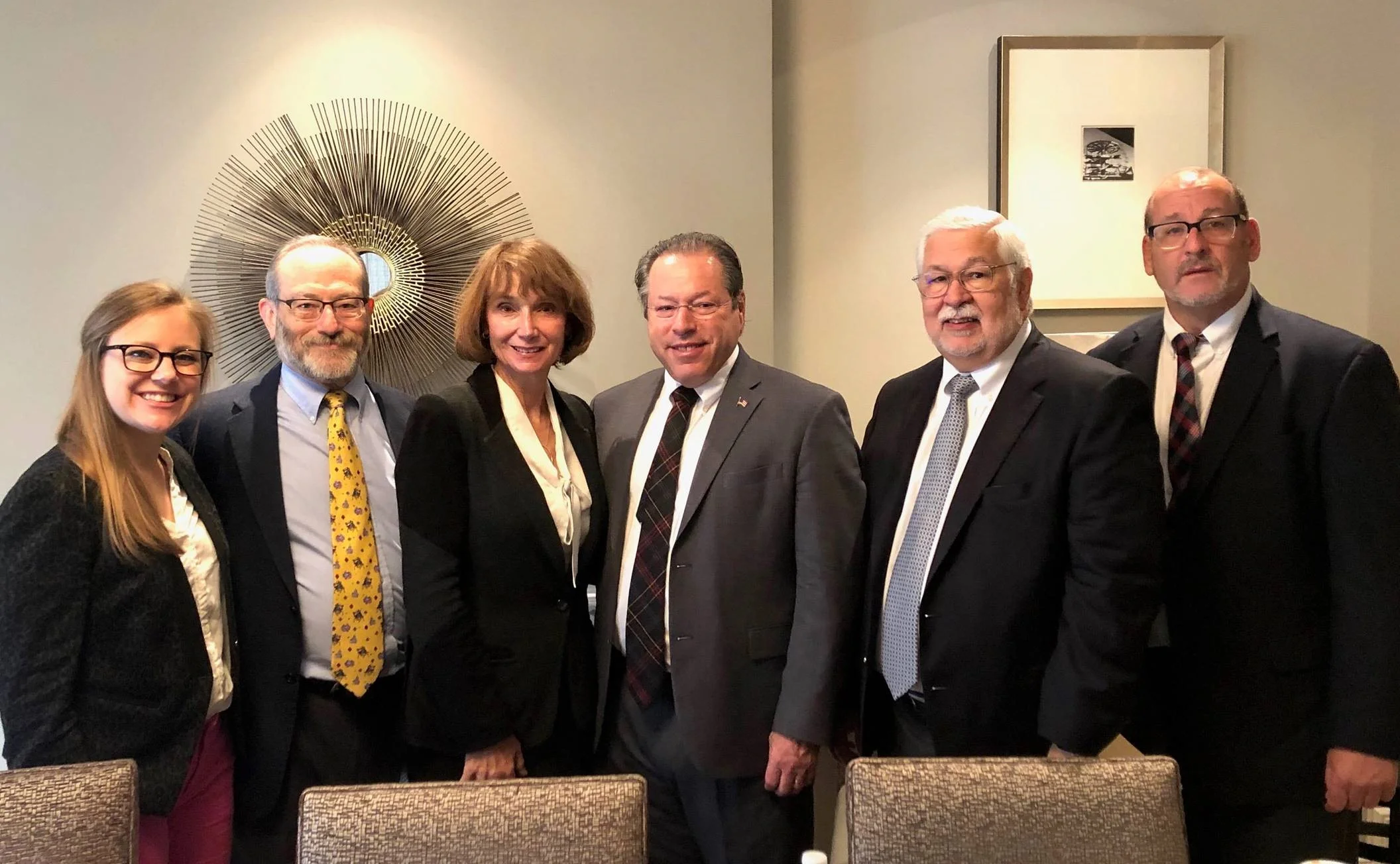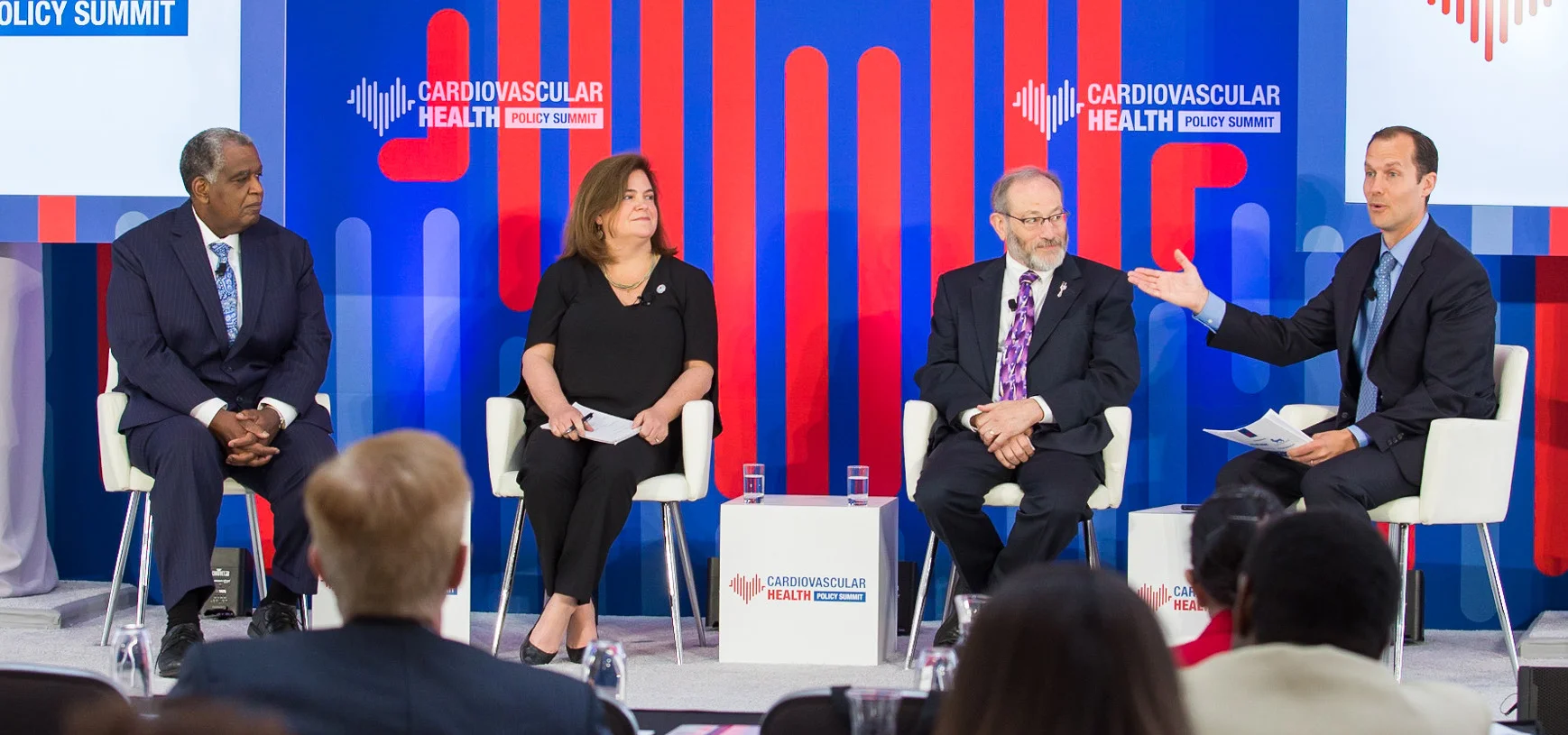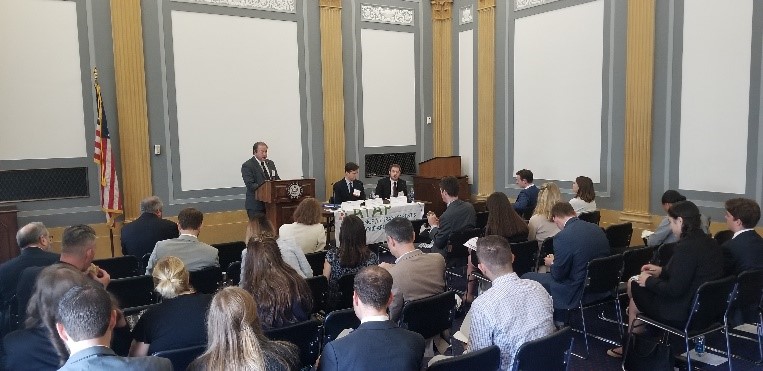On September 23, members of ATAP were on the Hill in support of Section 306 of the Lower Health Care Costs Act, which is a Senate HELP Committee bill focused in large part on surprise billing. Section 306 contains comprehensive PBM reform. "We kept our focus on the Senate with the main goal of expressing support for inclusion of 306," said ATAP President Dr. Robert Levin. "The feedback from staff was overwhelmingly supportive with regard to the substance of section 306, which is fantastic in light of the lobbying the PBMs are doing against it."
Read MoreThe Alliance for Transparent and Affordable Prescriptions (ATAP) consists of twenty-three patient and provider groups who are concerned about the role pharmacy benefit managers (PBMs) play in our drug supply chain. As prescribers and patients, we have seen firsthand the negative effect that some of the business practices of PBMs are having on patients’ ability to access needed medications. As such, we strongly support Section 306 (“Health Plan Oversight of Pharmacy Benefit Manager Services”) of S. 1895 as reported out of the HELP Committee.
Read More"Harry Gewanter, M.D., of the Alliance for Transparent & Affordable Prescriptions explained that the “extremely opaque, extremely complex” drug supply chain is part of the problem. Pharmacy benefit managers, the middlemen who manage prescription drug benefits for major health plans, exacerbate the issue. PBMs may make coverage decisions based on what’s financially advantageous to them through the drug rebate system – even if those decisions put patients at risk by complicating access to medicine that prevents heart attack, stroke and death."
Read MoreMembers of the Alliance for Transparent and Affordable Prescriptions (ATAP) gathered in DC on Wednesday, June 26th, for the organizations first ever Hill Day and Congressional Briefing. Over 20 advocates representing patient and provider organizations from across the country spent the entire day educating Congress on drug pricing and access issues related to Pharmacy Benefit Managers (PBMs).
Read MoreDr. Angus Worthing writes on the next steps for biosimilars in the US market.
Read MoreDr. Madelaine Feldman notes the mantra we hear over and over by pharmacy benefit managers (PBMs) is that they “reduce the cost” of medicines. What they don’t tell us is that they reduce the cost of medicines for themselves – not for the patients.
Read MoreATAP thanks the Administration for beginning to correct the perverse incentives in our drug supply chain that have caused sharply increasing list prices and ever-climbing out-of-pocket burdens for patients. We support elimination of the antikickback safe harbor for rebate payments from pharmaceutical manufacturers to PBMs. We also encourage the Administration’s vigilance to ensure that arrangements mimicking rebates do not crop up in their place. ATAP supports allowing manufacturers to provide discounts directly to patients at the point-of-sale and notes that this reform will remove barriers to manufacturers lowering drug prices.
Read MoreDr. Madelaine Feldman discusses how, in order to give relief to patients, Washington must change the system that encourages higher list prices, take the billions in “savings” from the pockets of the middleman and allow them to be passed directly to the consumer.
Read MoreThe US Senate Finance Committee is upping the ante on the issue of drug pricing with yet another hearing — this time with pharmacy benefit managers.
Read MoreDuring this 28 minute conversation, Dr. Levin discusses ATAP's mission and funding and ATAP's position on the administration's current proposal to reform Medicare Part B drug pricing via reference pricing or via the use of an international price index. Dr. Levin discusses moreover the administration's current proposal to reform Medicare Part D drug pricing by eliminating or prohibiting drug manufacturers from paying a rebate to pharmaceutical benefit managers (PBMs) and Part D plan sponsors. This conversation concludes with Dr. Levin's comments concerning the long standing debate whether the Secretary of DHHS should be allowed to negotiate Part D drug prices with manufacturers.
Read More


